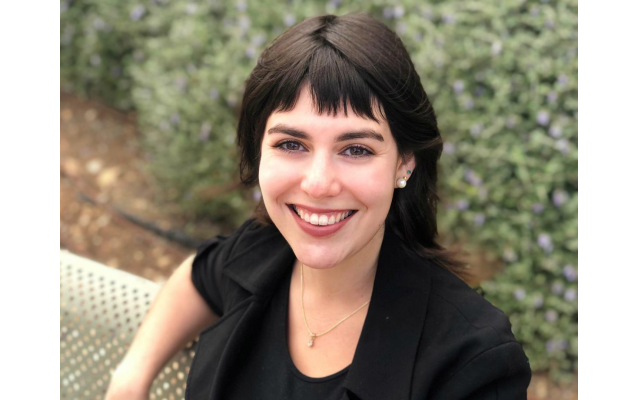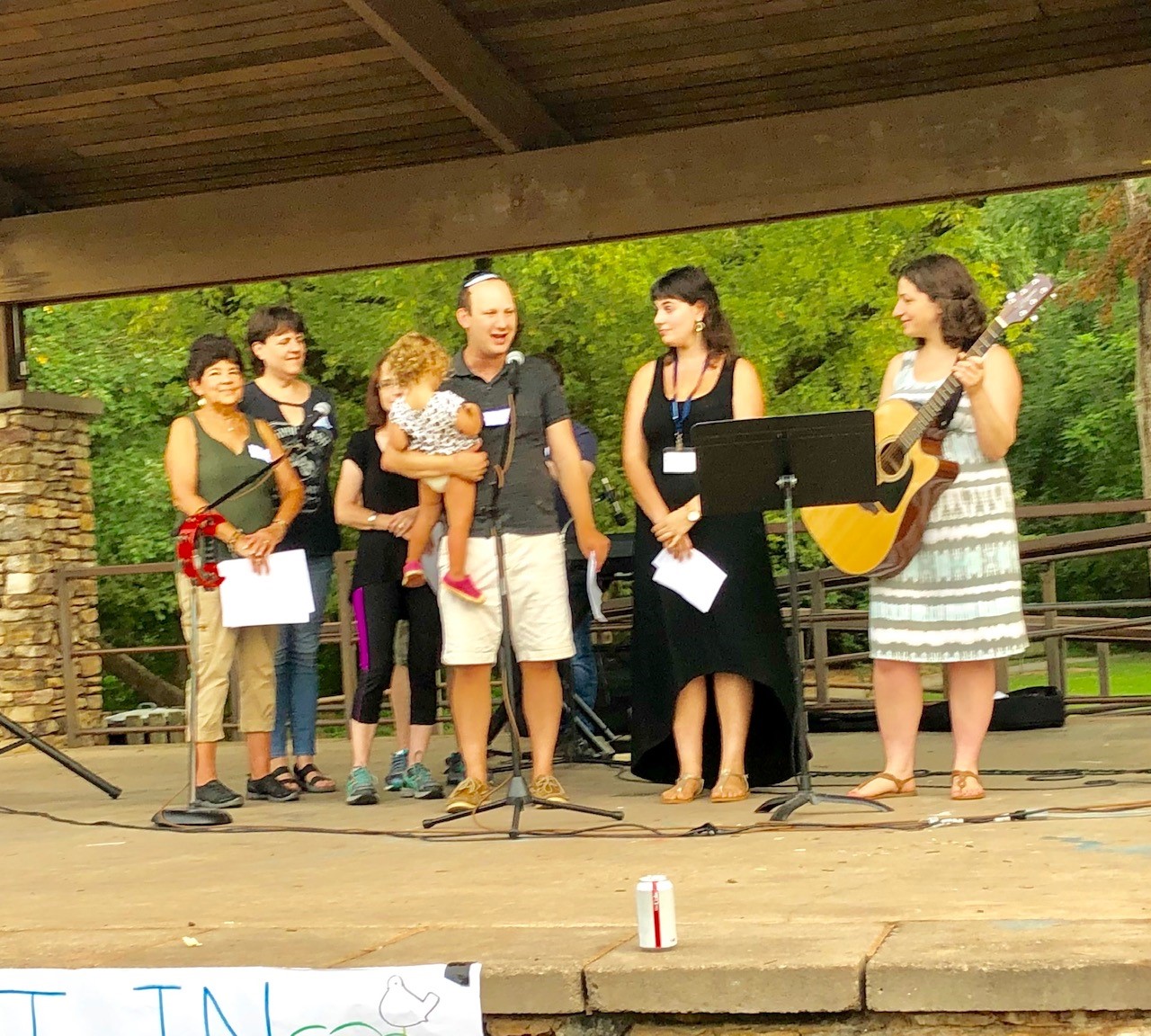Female Rabbi-To-Be Emerges From Orthodox Roots
At 29, Amalia Mark is in the fourth year of a five-year rabbinic school program, and what she’s learning there is a far cry from the Judaism of her youth.

Watching her parents prepare for her brother’s Shabbat bar mitzvah, Amalia Mark recalls her first awakening that she wasn’t able to be her “authentic Jewish” self. Her family invested in her brother’s coming-of-age ceremony much more than her bat mitzvah a week later. They were a year apart in age. Her’s was a simple ceremony at her home Shabbat afternoon in which she taught a class for women.
If that scene had not unfolded, she said she might not have felt the uncomfortable, out-of-place sensation that led her to abandon her Orthodox roots and eventually find a way to a rabbinical school that welcomes women.
Mark, who likes to be called “Rav Amalia” as she tests the rabbinic title, is Congregation Etz Chaim’s first female clergy member – if only temporary – as rabbinic intern. During the high holidays, she will lead the youth service and give the sermon on the second day of Rosh Hashanah, among other duties.

At 29, Mark is in the fourth year of a five-year program at the pluralistic Rabbinical School of Hebrew College in Boston.
What she’s learning there is a far cry from the Judaism of her youth. Growing up in an Orthodox home outside of Washington, D.C., Jewish life “was in the air we breathed,” she said between classes.
“During middle school and high school, I became frustrated I could not have an active role” in Jewish life and had to stick to the expected path for Orthodox women. “I didn’t wake up one day and decide I’m not Orthodox. There were small choices,” that “led me further away from the Judaism I grew up with. … I’m thankful for that grounding and thankful I had a choice. I feel there was a hole and I’m nourishing it. That’s the task of every Jewish person.”
In college she began to read from the Torah while studying to be an actress as a theater major with a concentration in gender and women’s studies at the University of Maryland, Baltimore. She said she uses those skills as a rabbi-in-training.
Her parents don’t recognize her as a rabbi. “It’s painful for them. Their mentality is they taught me the right way to be, to serve G-d. So why do it any other way? I believe there’s not one way to be Jewish,” she said.
“We fundamentally disagree. There’s a lot of pain. Bringing my full self to the relationship is challenging.”
She conceded, “I’m not angry about that. I needed to find my own way.”
Before coming to Atlanta, Mark was director of Jewish student life at the University of Arizona Hillel and was a fellow at the New England branch of the New Israel Fund. Concurrently with the Etz Chaim position, she is also a rabbinic intern at the Mayyim Hayyim, a nondenominational community mikveh in Boston.
Working in the South offered a new dimension to her Judaism, she said.
She described the South as “the most warm and welcoming place I’ve ever been in. They take the value of Southern hospitality and fuse it with the Jewish value of welcoming guests.”

Rabbi Daniel Dorsch said of Mark, “What struck us immediately about Rav Amalia when we first met was her warmth, creativity, and generosity of spirit. … We look forward to learning Torah with her over the course of the year.”
Mark believes part of her task as a rabbi will be to help others find a path to feeling “authentically and powerfully Jewish.”
She specifically wants to reach those on the fringe. “I feel strongly about people not really heard in Jewish life like women, Jews of color, LGBTQ, different disabilities, having a voice in 21st century Jewish life.” That’s why she appreciates Etz Chaim’s recently renovated sanctuary, which meets the needs of those with disabilities.
As far as returning to Etz Chaim full-time after rabbinical school, she said she’s not making any definitive plans. “Etz Chaim is a really wonderful shul and it’s growing. Ask me again in a year.”



comments